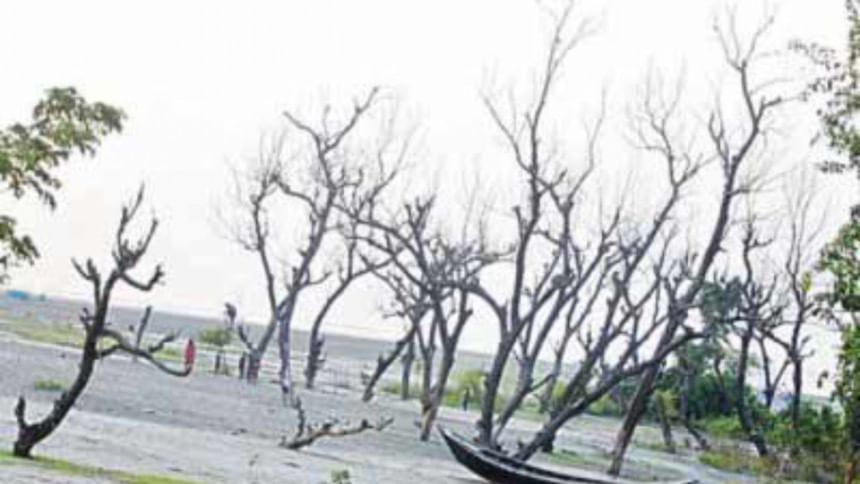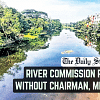Updating Bangladesh's climate change strategy and action plan

In 2009 Bangladesh developed and released the Bangladesh Climate Change Strategy and Action Plan (BCCSAP) which was the first of its kind at that time. It was a remarkable document for a number of reasons.
Firstly, it was developed entirely by Bangladeshi experts with Bangladesh government's own funds, rather than by international consultants funded by a developed country or UN agency.
Secondly, it was developed following an elaborate consultation with a wide variety of stakeholders from different groups as well as from grassroots people around the country.
Thirdly, it wasn't just a nice plan on paper (as so many others) but was actually implemented with funding support from the Bangladesh Climate Change Trust Fund (BCCTF) that was set up by the government of Bangladesh with its own money.
The finance minister has been allocating approximately USD 100 million equivalent in Bangladeshi taka each year since then to fund actions identified in the BCCSAP. Ten percent of the money was allocated to civil society groups for community-based adaptation activities while the remaining 90 percent was given to a wide variety of government ministries and departments that had to submit projects identified in the BCCSAP.
Thus over nearly a decade the government of Bangladesh has invested well over half a billion dollars of its own money in literally hundreds of actions to tackle climate change by both the government and civil society.
A remarkable feature of the BCCSAP was that even though the focus was primarily on adaptation to tackle climate impact (which is quite logical as Bangladesh is so vulnerable to it), after some debate nevertheless, it was decided to also include mitigation actions to reduce Bangladesh's emissions of greenhouse gases wherever we can. This was not necessary but we felt it was our moral obligation to reduce emissions if we can even if our overall emissions are still quite low.
The BCCSAP was always envisaged to be a living plan to be updated over time and the time has now come to revise it.
I would like to share some ideas on what I feel needs to be addressed in the revised BCCSAP going forward in light of changed circumstances as well as learning from the experience of hundreds of activities carried out over the last decade.
The first idea is to recognise that the BCCSAP and funding through the BCCTF have largely achieved the purpose of mainstreaming climate change into national and sectoral development planning. Hence in the future there is less need to develop separate climate change activities; we should instead include climate change as an element in all relevant development plans, projects and investments henceforth.
Secondly, we need to enhance the emphasis and investments in developing good Monitoring, Evaluation and Learning (MEL) systems to be able to demonstrate what we are doing and learn lessons while also be able to measure the outcomes more systematically than we have done so far.
Thirdly, we need to recognise the reality of a warming world that is already causing loss and damage due to anthropogenic climate change and hence mitigation and adaptation are no longer sufficient strategies by themselves. We now need to find ways to compensate the victims of anthropogenic climate change.
Here Bangladesh has an opportunity to again be innovative by using the unspent amount in the BCCTF to fund a national mechanism on loss and damage which can pioneer methods for measuring impacts, losses and damage and also provide compensation to the victims.
Finally, the revised BCCSAP should also focus on international diplomacy which goes well beyond merely sending a delegation to the annual conference of parties of the United Nations Framework Convention on Climate Change (UNFCCC). We should embed climate change in our normal diplomacy both at bilateral and multilateral levels. There is a major opportunity to share Bangladesh's knowledge on adaptation with other Least Developed Countries (LDCs) through South-South knowledge-exchange.
In conclusion Bangladesh has a huge opportunity to bring together climate change and the Sustainable Development Goals (SDGs) where Goal 13 explicitly talks about tackling climate change. We should also incorporate tackling climate change into the 2041 Vision currently under preparation and the Delta Plan 2100.
The revised BCCSAP should become the guiding document on ensuring that tackling climate change is genuinely mainstreamed into planning and practice while Bangladesh continues its journey from LDC to developing country by 2024 and then developed country by 2041.
Saleemul Huq is Director of the International Centre for Climate Change and Development at the Independent University, Bangladesh.
Email: [email protected]

 For all latest news, follow The Daily Star's Google News channel.
For all latest news, follow The Daily Star's Google News channel. 








Comments